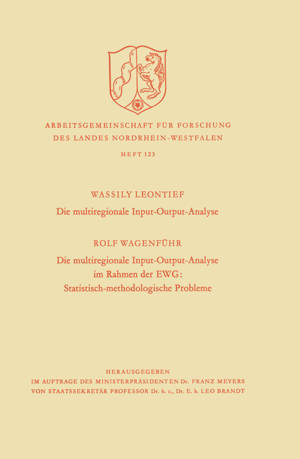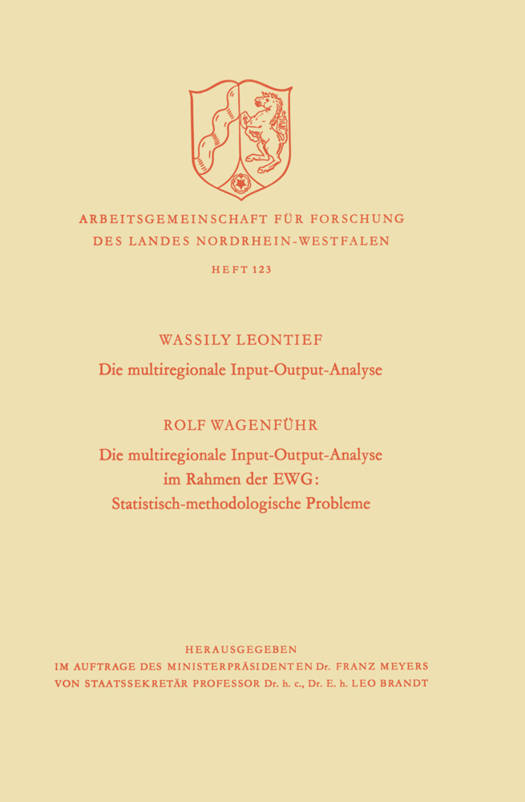
Bedankt voor het vertrouwen het afgelopen jaar! Om jou te bedanken bieden we GRATIS verzending (in België) aan op alles gedurende de hele maand januari.
- Afhalen na 1 uur in een winkel met voorraad
- Gratis thuislevering in België vanaf € 30
- Ruim aanbod met 7 miljoen producten
Bedankt voor het vertrouwen het afgelopen jaar! Om jou te bedanken bieden we GRATIS verzending (in België) aan op alles gedurende de hele maand januari.
- Afhalen na 1 uur in een winkel met voorraad
- Gratis thuislevering in België vanaf € 30
- Ruim aanbod met 7 miljoen producten
Zoeken
Die Multiregionale Input-Output-Analyse. Die Multiregionale Input-Output-Analyse Im Rahmen Der Ewg: Statistisch-Methodologische Probleme
Wassily W Leontief
€ 64,45
+ 128 punten
Omschrijving
The theoretical model presented in the first part of this paper is intended to provide analytical basis for construction of empirically implemented multiregional input-output systems. It describes a given "national" or "inter- national" economy in terms of mutually interrelated sectors whose activities are distributed over several regions. The total output and the total input of each type of good and service in each region, the regional "final demands" and the corresponding flows from each region to itself and to every other region appear as variables in two distinct groups of equations. The first group comprises the conventional input-output equations of each region; the total regional output and total regional input of each type of good and service are described by separate variables. In the second group of equa- tions, the flow of each type of good and service from one region to another is represented as a non-linear (quadratic) function of its total output in the exporting and the total input in the importing region, its aggregate (multi- regional) output and of an empirically determined parameter. The second part of the paper is devoted to presentation of the analytical role of the forementioned parameters and description of alternative methods by which their magnitude can be empirically determined for every com- modity flow between each pair of regions. In contrast to the standard linear programming approach to the solution of transportation problems, the pre- sent model admits nominally identical goods flowing simultaneously between two regions in opposite directions.
Specificaties
Betrokkenen
- Auteur(s):
- Uitgeverij:
Inhoud
- Aantal bladzijden:
- 93
- Taal:
- Duits
- Reeks:
- Reeksnummer:
- nr. 123
Eigenschappen
- Productcode (EAN):
- 9783322983480
- Verschijningsdatum:
- 1/01/1963
- Uitvoering:
- Paperback
- Formaat:
- Trade paperback (VS)
- Afmetingen:
- 170 mm x 244 mm
- Gewicht:
- 167 g

Alleen bij Standaard Boekhandel
+ 128 punten op je klantenkaart van Standaard Boekhandel
Beoordelingen
We publiceren alleen reviews die voldoen aan de voorwaarden voor reviews. Bekijk onze voorwaarden voor reviews.









